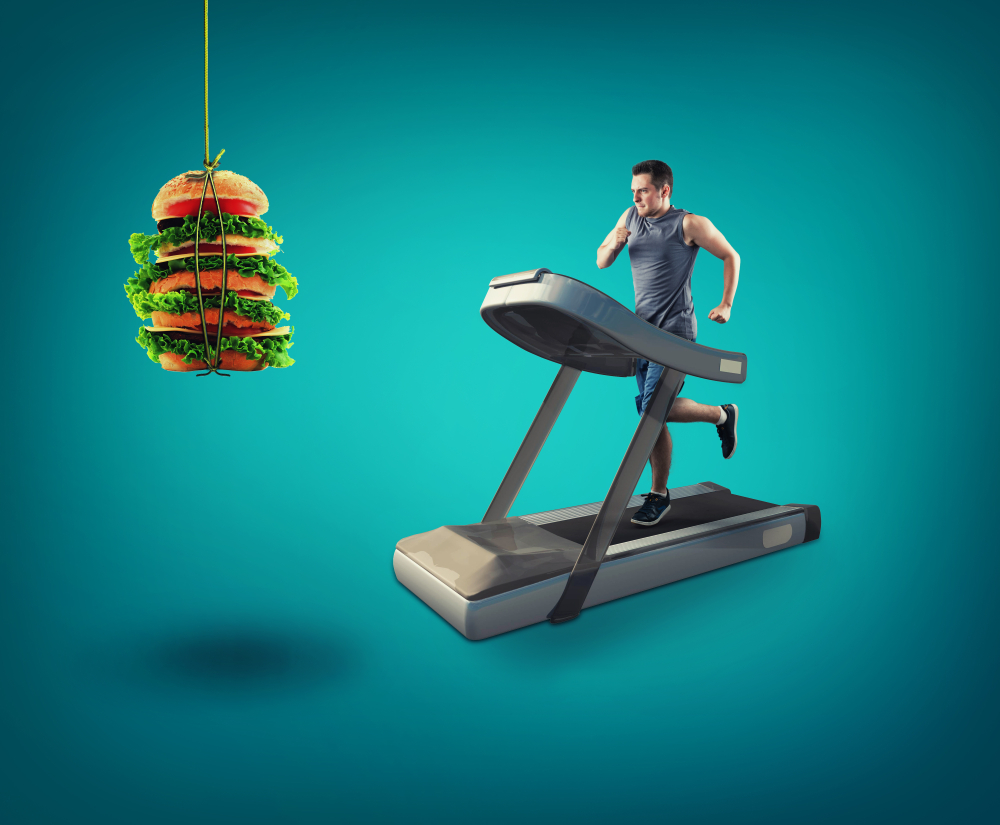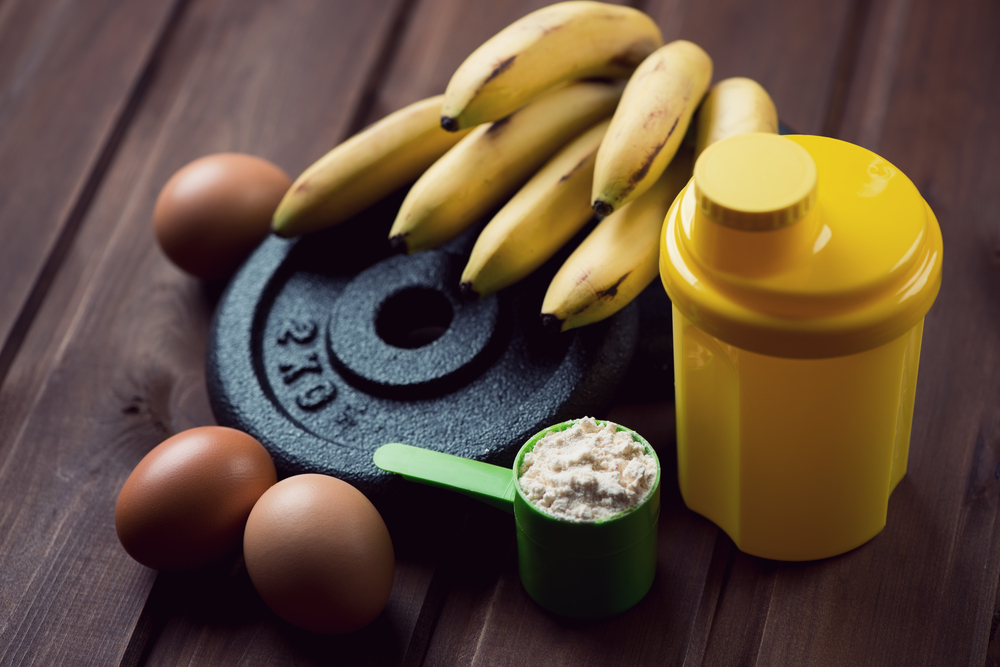Following a strict diet is not always easy . If the diet is not perfectly mastered, the more time passes, the more temptation there is until the moment when the urge to deviate is too strong . This is where the cheat meal comes in, where the principle is to indulge yourself by eating what you feel like .
But beyond the purely pleasurable aspect, does this dietary deviation have any real interest, particularly during a sports nutrition?
Restores glycogen stocks
In a weight loss phase, the first reflex (which is not always the right one) is to reduce the amount of carbohydrates ingested . Because they are the main fuel of the human body . So in principle, reducing the amount of carbohydrates means pushing the body to use another substrate to produce energy: fats .
But reducing the amount of carbohydrates reduces glycogen stocks as you train 1 . They become less and less productive and the lack of fuel is felt . Consuming large amounts of carbohydrates during a cheat meal creates a glycogen "rebound" which allows you to better follow up your training sessions and reduce physical and mental fatigue .
It is recommended to train large muscle groups such as the thighs after this rebound because they require the most energy .
The second interest of this rebound is congestion . Indeed, a muscle loaded with glycogen presents a much better congestion during the exercises of musculation 2 . A good muscle congestion translates into a well irrigated muscle and therefore correctly supplied with nutrients and oxygen essential to good muscle development .
Reloads the metabolism
Many bodybuilders mistakenly achieve their lean by drastically reducing carbohydrates and calories . A low-calorie diet allows you to lose weight, but in the long term, the body gets used to the calorie deficit and decreases its basic metabolism .
If the basal metabolic rate is slowed down, it requires even more effort on the diet to continue losing weight, making dieting and training increasingly difficult . A carbohydrate rebound can kick-start metabolism 3 .
However, it is much more effective if it is done over several days with a high carbohydrate diet . Needless to say, a rebound over several days must be done with calculated and thoughtful quantities, and not in the form of chips and pizza at will!
Improves mental state
Beyond the performance aspect, weighing and controlling each of the foods consumed has an impact on the mind and therefore on motivation .
Because a low-calorie, low-carbohydrate diet can lead to an increase in the secretion of cortisol, the catabolic stress hormone . And it is very often because of a drop in motivation that some people abandon their diet and therefore their objectives .
Eating what you like to your heart's content during a meal, accompanied by your family or friends, allows you to share a convivial moment and maintain your social life . This is perhaps the only real interest of the cheat meal . Sharing a good moment away from the objectives, avoiding frustrations and having fun 5 .
When and how to do it?
Obviously you shouldn't overdo it! It all depends on your objectives, if they are not very demanding, one per week can be quite enough .
They can be taken at any time of the day (breakfast, lunch or dinner) according to your preferences . It is best not to splurge on junk food (chips, pizza) but rather to go for healthier, lower calorie foods such as sushi .
On the other hand, if you have a specific goal in mind that requires rigour, the cheat meal is not an option . Instead, you should opt for a carbohydrate rebound over several days to restore glycogen stores and boost metabolism . The intake should be calculated beforehand according to your morphology and your physical activity .
The consequences
If the cheat meal is well thought out, the consequences will be minimal . In the worst case scenario, you may experience a small amount of water retention which will cause you to gain one kilo on the scale, which will go back on the scale as soon as you return to your normal diet .
If, on the other hand, you eat more than you are hungry and do not restrict your eating or drinking, the consequences can be more serious . It can lead to sleep disturbances, a feeling of tiredness and poor physical condition for several days following this excess 7 . Water retention will be important and the calories ingested will slow down weight loss . If you repeat this once a week, it will slow down your progress considerably .
Our advice
To conclude, if a diet is well conducted and you have enough willpower, cheat meals are only useful to spend a convivial moment with your loved ones . It is best to use the controlled rebound technique to optimise your results without risking ruining your efforts and your health by abusing the sugars, saturated fats and controversial additives found in large quantities in the processed foods and sweets often used in cheat meals .
Bibliographie
1 Murray B, Rosenbloom C . Fundamentals of glycogen metabolism for coaches and athletes . Nutr Rev . 2018;76(4):243–259 . doi:10 . 1093/nutrit/nuy001
2 . Scott EM, Greenwood JP, Vacca G, Stoker JB, Gilbey SG, Mary DASG: Carbohydrate ingestion, with transient endogenous insulinemia, produces both sympathetic activation and vasodilation in normal humans . Clin Sci (Lond) 2002; 102: 523- 529
3 . https://www . healthline . com/nutrition/carb-cycling-101
4 . Tomiyama AJ, Mann T, Vinas D, Hunger JM, Dejager J, Taylor SE . Low calorie dieting increases cortisol . Psychosom Med . 2010;72(4):357–364 . doi:10 . 1097/PSY . 0b013e3181d9523c
5 . Rada P, Avena NM, Hoebel BG: Daily bingeing on sugar repeatedly releases dopamine in the accumbens shell . Neuroscience2005; 134:737-44
6 . Fernández-Elías, V . E . , Ortega, J . F . , Nelson, R . K . et al . Eur J Appl Physiol (2015) 115: 1919 . https://doi . org/10 . 1007/s00421-015-3175-z
7 . Frank S, Gonzalez K, Lee-Ang L, Young MC, Tamez M, Mattei J . Diet and Sleep Physiology: Public Health and Clinical Implications . Front Neurol . 2017;8:393 . Published 2017 Aug 11 . doi:10 . 3389/fneur . 2017 . 00393


